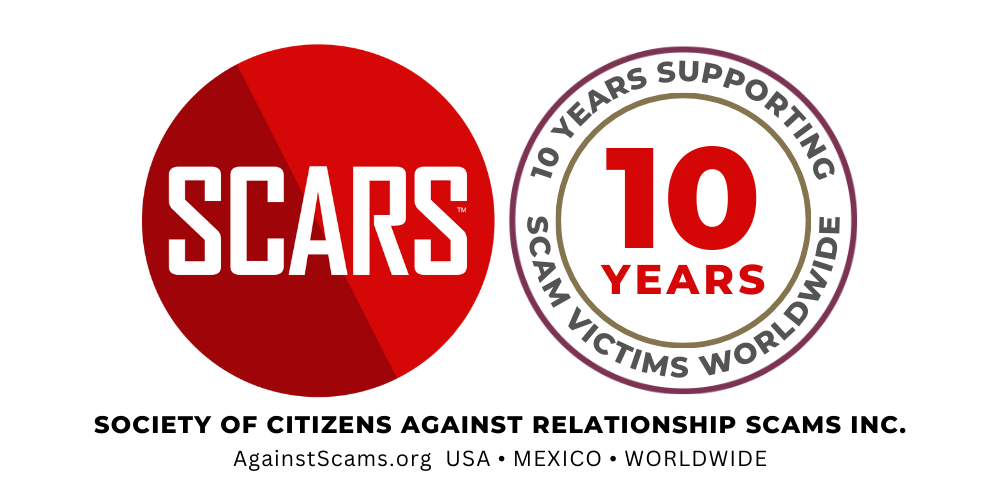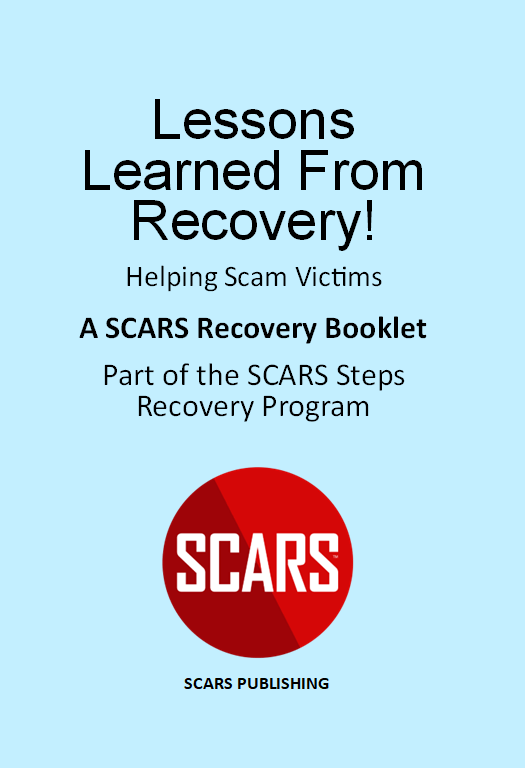
How Scam Victims Can Maximize Support Groups Benefits
Staying Focused on Getting the Most from Support Groups makes the difference for New Scam Victims
Avoid Support Groups that focus on hostility
Key Topics:
-
Choosing the Right Support Provider
-
Factors to Consider
-
Credentials to Look For
-
Getting the Most from the Support Group You Choose
Helping Traumatized Scam Victims Better Understand what they need to do to get the Maximum Benefit from Professionally Managed Support Groups
Recovering from a scam can be a daunting journey fraught with emotional turmoil and uncertainty, especially in the beginning for scam victims.
Everywhere they look, scam victims see thousands of anti-scam groups on social media, all claiming to be experts. Sadly, they simply are not.
A. Choosing the Right Support Provider
Finding the right support provider is critical for scam victims on their journey to recovery.
With countless options available, selecting a provider that meets individual needs and offers credible support is essential. This will help scam victims explore key factors scam victims should consider when choosing a support provider and highlight the credentials to look for.
Factors to Consider
Specialization
Seek support providers who specialize in assisting scam victims. These professionals need to possess a deep understanding of the unique challenges faced by individuals affected by scams and can offer tailored assistance.
Experience
Look for providers with a proven track record of helping scam victims. Experience equips support providers with insights, strategies, and resources to address various aspects of scam recovery effectively. For example, SCARS has had over 12,000 scam survivors successfully pass through its program.
Optional For Scam Victims
SCARS Recovery Program – Lessons Learned From Recovery Book – FREE PDF DOWNLOAD – available on shop.AgainstScams.org
Credentials
Confirm that the support provider has the certifications and credentials to ensure they possess the necessary qualifications and expertise. Credentials should include certifications in trauma-informed care and related areas and have psychologists on their team. Just saying you know about scams is not enough.
Approach
Consider the approach and methodology used by individual support providers. Select those who employ evidence-based practices, trauma-informed care, and culturally sensitive approaches to meet diverse needs.
Accessibility
Assess the accessibility of support services, including the availability of online support groups, zoom calls, and resources. Choose providers who offer flexible scheduling and convenient communication channels.
Empathy and Understanding
Seek support providers who demonstrate empathy, compassion, and understanding towards scam victims. A supportive and non-judgmental approach fosters trust and facilitates open communication. However, also look for a provider that will always tell you the truth.
Referrals and Recommendations
Seek recommendations from trusted sources, such as friends, family members, law enforcement, or other reputable organizations. Referrals can help identify reputable support providers with a proven reputation. A professional support provider will also provide you with choices.
Transparency and Accountability
Choose support providers who operate with transparency and accountability. Clear communication regarding services offered, fees, confidentiality policies, and expectations ensures a positive and ethical therapeutic relationship.
Credentials to Look For
Licensed Mental Health Professionals
Look for providers who are licensed counselors, therapists, psychologists, or social workers. Licensure ensures that the provider has met specific educational and training requirements and adheres to professional standards of practice. Most scam victim support groups are not mental healthcare providers and will make that clear. However, a professional provider should have them on their team and well as refer scam victims to mental healthcare professionals in most cases.
Certification in Trauma-Informed Care
Consider providers with specialized training or certifications in trauma-informed recovery, grief counseling or coaching, and other specialized and related fields. Look for providers that demonstrate a very clear understanding and competency in the emotional and psychological experiences unique to scam victims. Such credentials indicate expertise in understanding the psychological impact of scams and promoting healing. Additionally, their team should be continuously advancing their knowledge through new certifications every year.
Membership in Professional Associations
Verify if the support provider is affiliated with reputable professional associations related to crime victims’ assistance and advocacy. Membership in organizations such as these reflects a commitment to professional development and ethical practice.
Published Ethical Standards
Explore the organization’s published professional standards and ethics. The better defined their ethical standard the more likely they can meet the needs of the victim in their care and gauge the effectiveness and quality of support services provided.
Expressions of Hostility
Turn away immediately from any group that expresses hostility towards anyone, including the criminals that defrauded victims. Such hostility invariably infiltrates a group’s management and operational perspectives.
The Right Provider
Choosing the right support provider is a critical step in the scam recovery journey. By considering factors such as specialization, experience, credentials, approach, accessibility, empathy, referrals, and accountability, scam victims can identify reputable providers capable of offering tailored and effective support. Prioritizing support from licensed mental health professionals with expertise in trauma recovery ensures that scam victims receive the compassionate and competent assistance they deserve on their path to healing.
However, it is also important to note that not all scam victims will benefit from a support group initially. Many victims will need trauma counseling or therapy first before they are emotionally or psychologically ready to participate in and get the benefit from a proper support group.
B. Getting the Most from the Support Group You Choose
Support groups offer traumatized and grief-stricken scam, fraud, and cybercrime victims a beacon of hope, providing a safe space for scam victims to share their experiences, safely learn, seek guidance from true professionals, and find solace.
However, to reap the fullest benefits from these support services, active engagement and participation are essential. This will outline strategies for scam victims to maximize their involvement in support groups and navigate the path to healing and recovering effectively.
Member Participation
Active Participation
Active participation in support groups involves more than just showing up or attending meetings. It requires a willingness to engage with fellow members, share personal experiences, and contribute to discussions. By actively participating, scam victims not only receive support but also offer empathy and encouragement to others facing similar challenges. Sharing one’s story can be cathartic and empowering, fostering a sense of connection and camaraderie within the group. As each member progresses through their own recovery path they are empowered to share their recovery insights and receive them from others further along.
Openness and Vulnerability
To fully benefit from a support group, scam victims must be willing to embrace vulnerability and openness. This means always being honest about their experiences, feelings, and struggles, even if they feel ashamed or embarrassed. Opening up to others can be intimidating, but it is a crucial step towards healing. Vulnerability allows for authentic connections to form and enables members to receive the support and validation they need to move forward. Especially after a period of being lied to each member needs to see and hear from others with complete authenticity.
Seeking and Offering Advice
Scams are a complex crime, and support groups must have true experts in criminology and victimology available, as well as in many other areas that victims will face during their recovery. Proper support groups provide a wealth of collective knowledge and experience that can be invaluable to scam victims. Whether seeking guidance on coping strategies, legal advice, or financial recovery options, members can tap into the collective wisdom of the group provided by their provider. Similarly, offering advice and sharing insights based on personal experiences can be incredibly rewarding. By exchanging ideas and information, members empower each other to navigate the challenges of scam recovery more effectively.
Building Connections
Building connections within a support group is key to creating a strong support network and reestablishing trust in others. Forming relationships with fellow members who understand and empathize with your experiences can provide a sense of belonging and validation. These connections extend beyond the confines of support group meetings, offering ongoing emotional support and companionship throughout the recovery journey.
Utilizing Available Resources
Support groups often offer a range of resources and services to assist scam victims in their recovery. From professional knowledge, educational workshops, and presentations to conversations about legal and financial topics, these resources can complement the support provided by the group and support provider. Taking advantage of these offerings is vital to enhancing and shortening the recovery process and empowering scam victims to address their unique needs more effectively.
The Vital Connection
Support groups play a vital role in the recovery journey of scam victims, offering empathy, validation, professional expert knowledge, and practical assistance. By actively participating, embracing vulnerability, seeking and offering advice, building connections, and utilizing available resources, scam victims can maximize the benefits of their support group and navigate the path to healing with resilience and strength.
Remember, this was not your fault and you are not alone, and together, we all can overcome the challenges posed by scams and emerge stronger than before.
SCARS Support & Recovery
- SCARS INSTITUTE FREE Scam Survivor’s School for Your Recovery • www.SCARSeducation.org
- SCARS Support & Recovery Program For Scam Victims
- Join a Free Safe & Confidential SCARS Support & Recovery Group Now
- SCARS Self Help Books
- How Scam Victims Can Maximize Support Groups Benefits
- If you are looking for local trauma counselors please visit counseling.AgainstScams.org or join SCARS for our counseling/therapy benefit: membership.AgainstScams.org
- If you need to speak with someone now, you can dial 988 or find phone numbers for crisis hotlines all around the world here: www.opencounseling.com/suicide-hotlines
Important Things For Scam Victims To Know
- Importance Of Starting Off Right For New Scam Victims
- Importance Of Journaling For New Scam Victims
- Importance For Scam Victims Of Support & Recovery Group
- Importance Of Learning For Scam Victims Recovering
- Importance Of Trauma Therapy For Scam Victims
- Importance Of Scam Victims Avoiding The Vigilante Trap
- SCARS 3 Steps For New Scam Victims
- Every New Scam Victim Needs To Understand What To Do Next!
- Scam Victims Reporting Scams And Interacting With The Police
- Essential Information for New Scam Victims on SCARS RomanceScamsNOW.com
- Learn More on SCARS ScamsNOW.com
SCARS Resources
- Register for the SCARS Institute FREE Scam Survivor’s School at SCARSeducation.org
- More Info For New Victims of Relationship Scams newvictim.AgainstScams.org
- Subscribe to SCARS Newsletter newsletter.againstscams.org
- Sign up for SCARS professional support & recovery groups, visit support.AgainstScams.org
- Join our Scam Survivors United Chat, Education & Discussion Group facebook.com/groups/scam.survivors.united
- Find competent trauma counselors or therapists, visit counseling.AgainstScams.org
- Become a SCARS Member and get free counseling benefits, visit membership.AgainstScams.org
- Report each and every crime, learn how to at reporting.AgainstScams.org
- Learn more about Scams & Scammers at RomanceScamsNOW.com and ScamsNOW.com
- Scammer photos ScammerPhotos.com
- SCARS Videos youtube.AgainstScams.org
- Self-Help Books for Scam Victims are at shop.AgainstScams.org
- Donate to SCARS and help us help others at donate.AgainstScams.org
- Worldwide Crisis Hotlines: https://blog.opencounseling.com/suicide-hotlines/
• SCARS Scam Psychology Guides & Knowledge: ScamPsychology.org
















